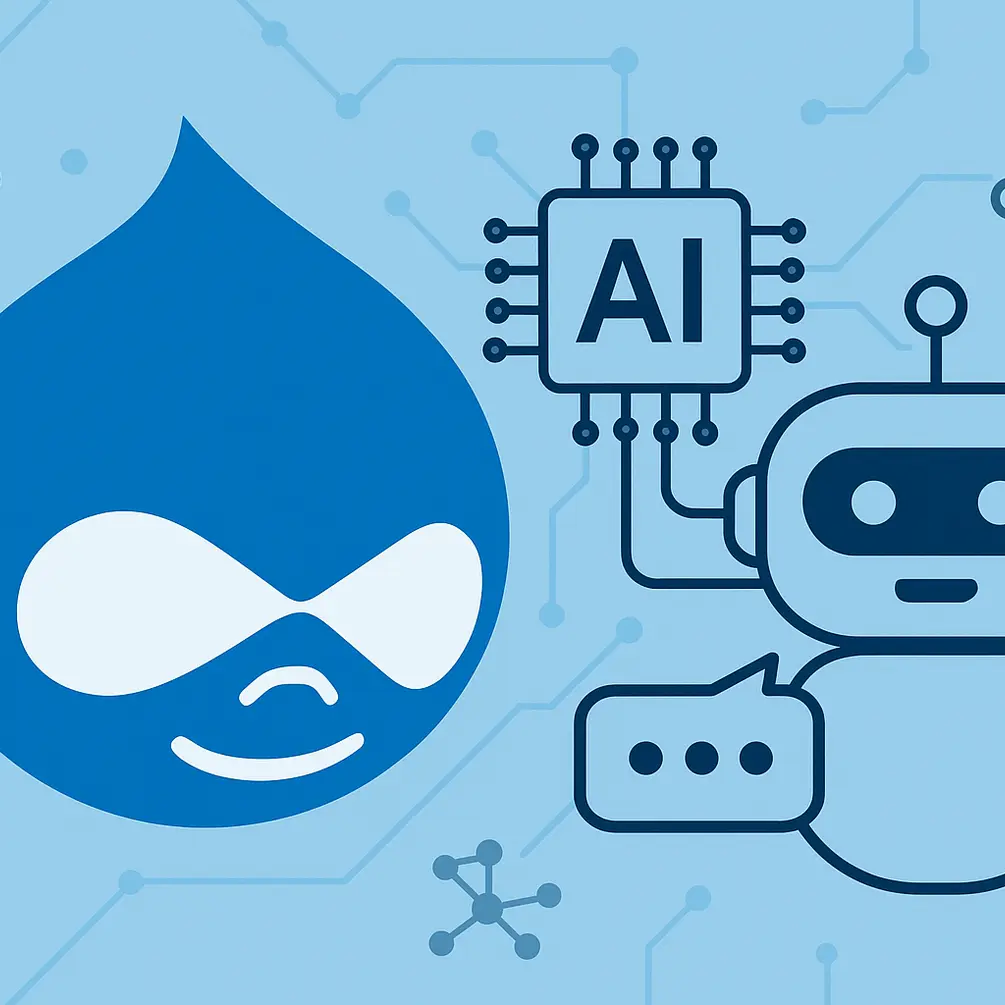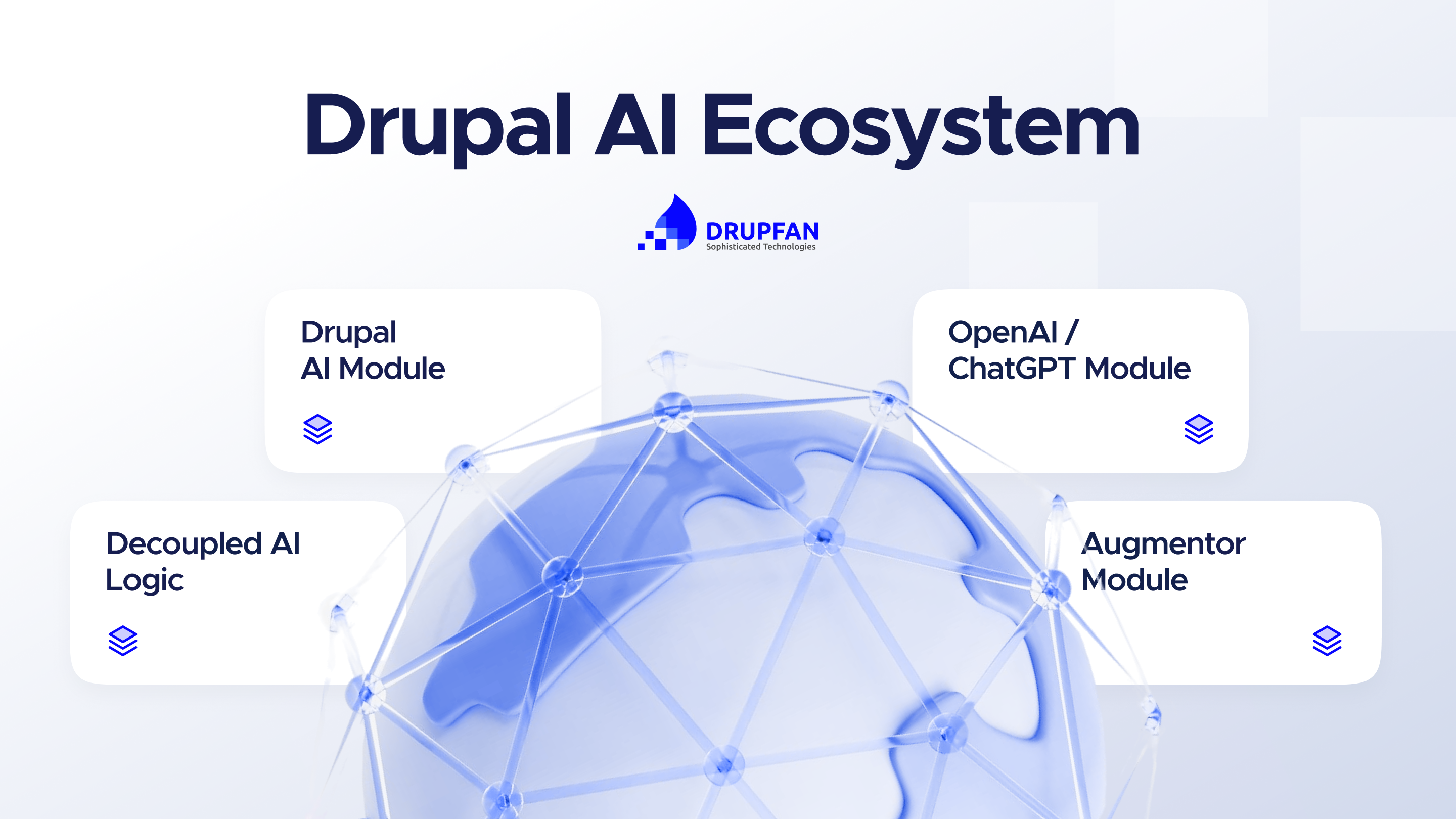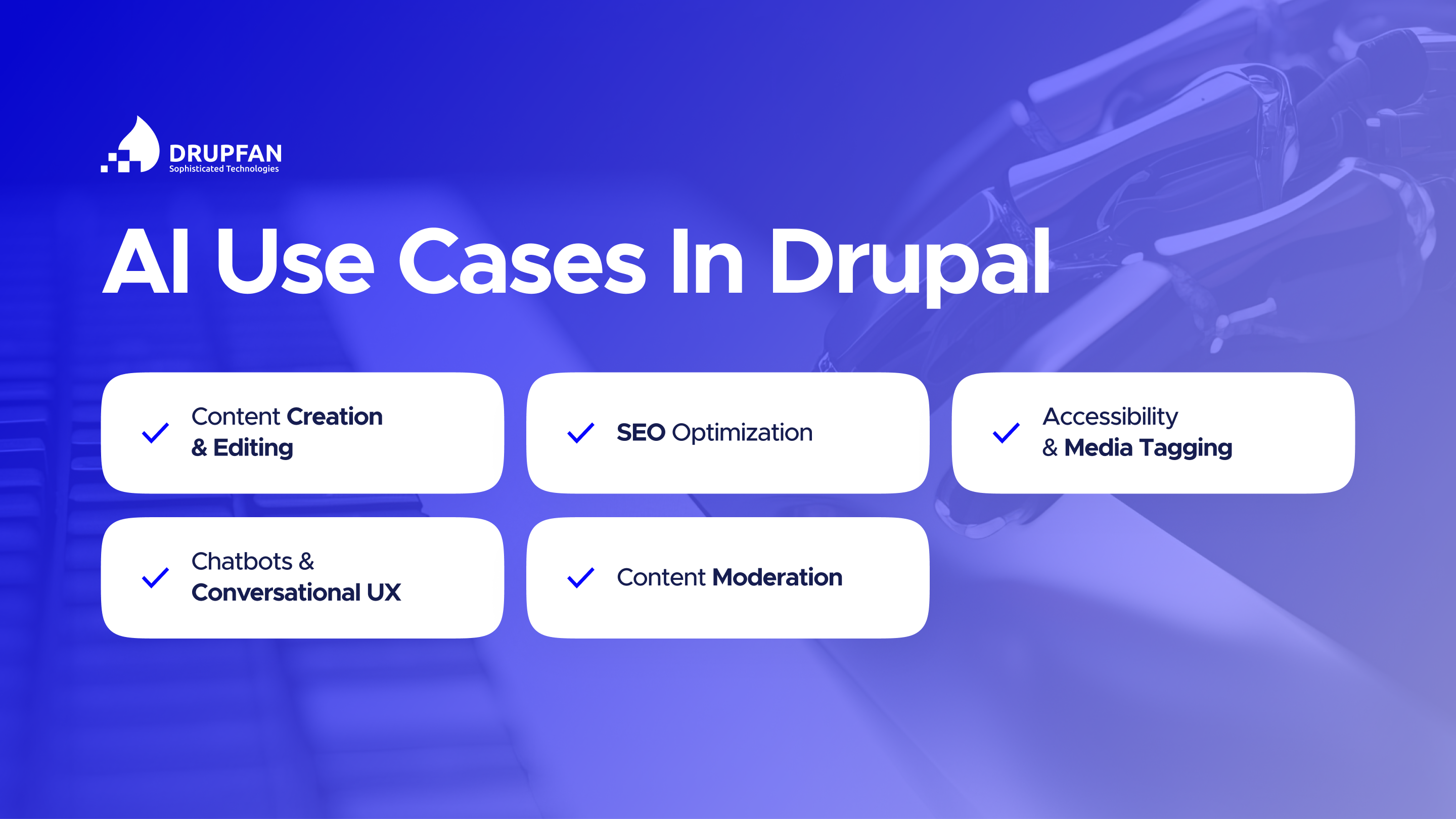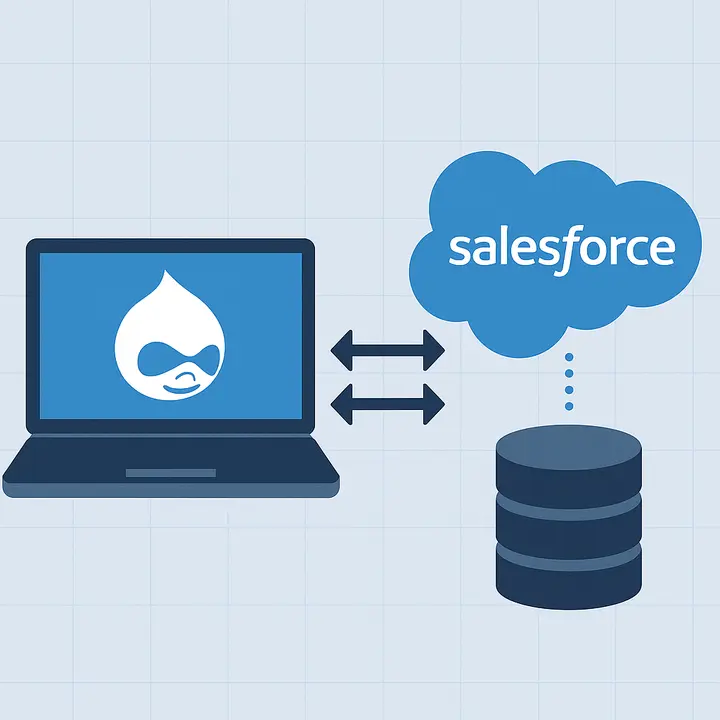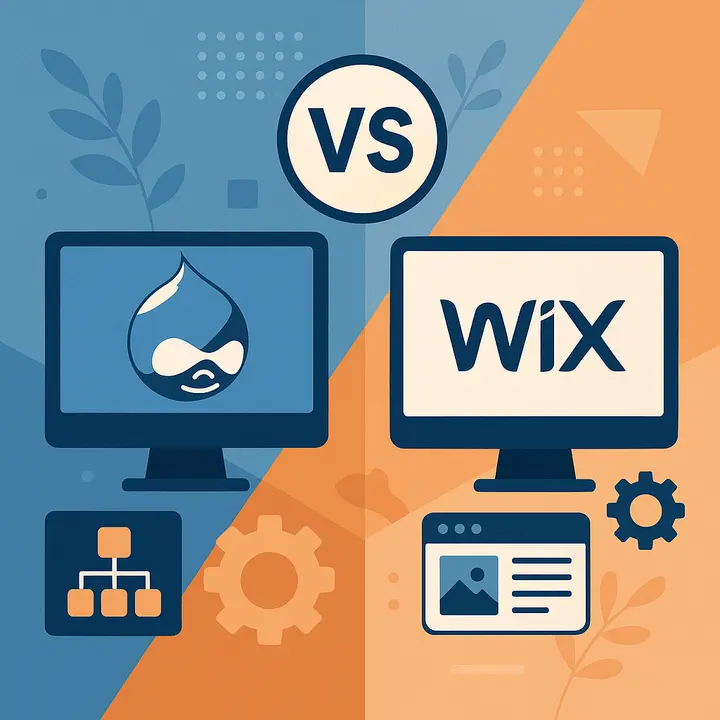Building Smarter Drupal Sites: AI Assistants, ChatGPT, and AI Applications in Action
The Drupal community has rapidly transitioned from experimenting with AI to developing practical, production-ready solutions. What began as exploratory integrations has now evolved into a growing set of modules, APIs, and workflows that empower site builders, editors, and enterprises. These initiatives demonstrate that AI in Drupal is about solving real-world problems and reducing publishing bottlenecks to personalizing user experiences at scale.
Content Authoring with ChatGPT in CKEditor
Since early 2023, Drupal developers have integrated ChatGPT directly into CKEditor, the core text editor in Drupal. This functionality allows authors to:
- Generate first drafts of blog posts, product descriptions, or landing page copy within seconds.
- Rephrase or simplify text for different audiences (e.g., technical vs. non-technical readers).
- Translate or localize content for multilingual websites without leaving the CMS.
This significantly reduces publishing cycles and lowers the entry barrier for teams managing large volumes of content. For global organizations, it also eases the pressure on translation workflows by delivering instant drafts that human editors can polish.
Expanding the AI Toolset with Agents & APIs
Beyond generative text, Drupal’s AI ecosystem now spans multiple use cases:
- AI Agents can automate repetitive editorial tasks such as tagging, categorization, and content recommendations.
- Assistant APIs connect Drupal to external LLMs, enabling intelligent search, knowledge-base chatbots, or context-aware support systems.
- Sentiment analysis modules analyze user-generated comments or feedback, giving site owners actionable insights into audience perception.
- Automated tagging & metadata generation speed up taxonomy management, ensuring content is structured correctly and easier to find.
These integrations illustrate how AI can quietly enhance Drupal’s core strength, its ability to manage complex content architectures with precision.
Community Momentum & Ecosystem Growth
Drupal’s open-source DNA ensures that AI innovation doesn’t remain siloed. The community has embraced AI as the next frontier for CMS evolution:
- Contributions such as the AI Interpolator and the Drupal AI initiative demonstrate collaboration among developers, agencies, and enterprises.
- New modules are released regularly, covering both text generation and advanced use cases, such as visual recognition (auto-tagging images, generating alt text) and predictive analytics.
- Community discussions and events highlight the shift from “can Drupal do AI?” to “which AI tool should I adopt first?” This is a sign of maturity.
This community-driven innovation ensures that Drupal users have access to a growing toolbox without waiting for vendor-driven updates.
Best Practices & Lessons from Experts
Experts stress that organizations should treat AI adoption as a journey, not a one-time switch. Standard best practices include:
- Start Small: begin with low-risk, high-impact use cases such as AI-powered tagging or AI-driven chatbots. These deliver measurable ROI quickly.
- Iterate & Scale: once early experiments succeed, expand to more complex workflows like automated SEO optimization, real-time personalization, or predictive analytics.
- Keep Human Oversight: AI should augment, not replace, editors. Establish review checkpoints to ensure brand tone, factual accuracy, and editorial quality are maintained.
- Measure & Optimize: Continuously monitor the impact of AI tools on engagement, efficiency, and performance. Use these insights to fine-tune or replace integrations.
The consensus is that AI works best when applied strategically to solve specific pain points, rather than being deployed everywhere at once.
Drupal AI in Action: Building Powerful Content Workflows with Modules and OpenAI
Drupal is becoming a leading platform for experimenting with AI applications, offering a suite of modules that bring various AI capabilities directly into content management. From content editing to image creation and image generation with DALL·E (or dall-e), the ecosystem now supports both text and media workflows. The AI module provides a framework for connecting with providers such as OpenAI (requiring an OpenAI key), GPT-4, Claude, and even open-source models, offering administrators flexibility without vendor lock-in.
This approach enables teams to leverage AI for generating text, conducting content analysis, improving accessibility and Drupal SEO, and even integrating with Slack for enhanced collaboration. While AI tasks can be time-consuming in other systems such as WordPress, Drupal’s open source community has built powerful submodules that simplify local development and make it possible to create custom solutions. Whether you’re exploring automation or advanced personalization, Drupal AI modules link seamlessly with existing workflows to maximize efficiency and impact.

